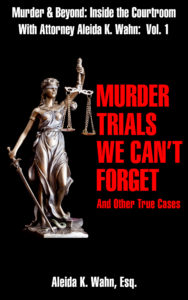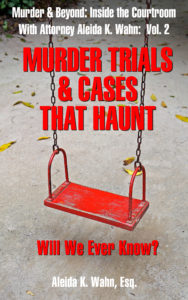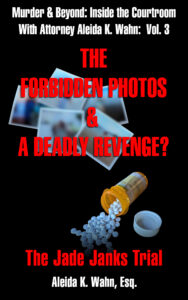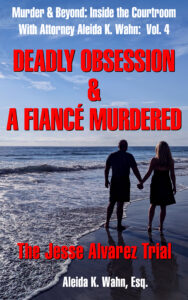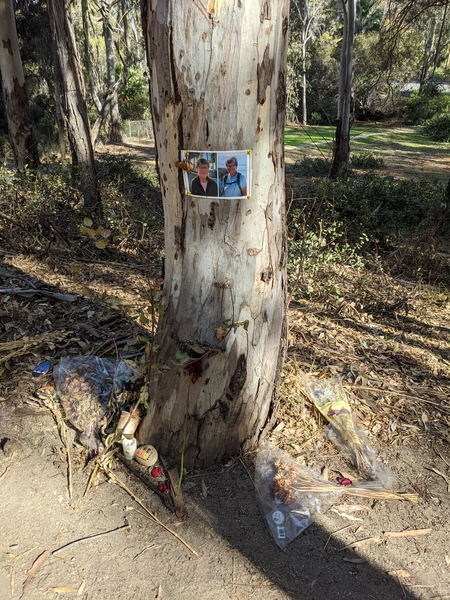
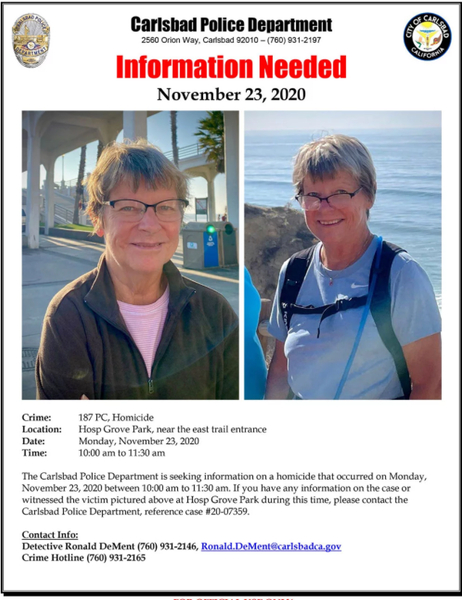
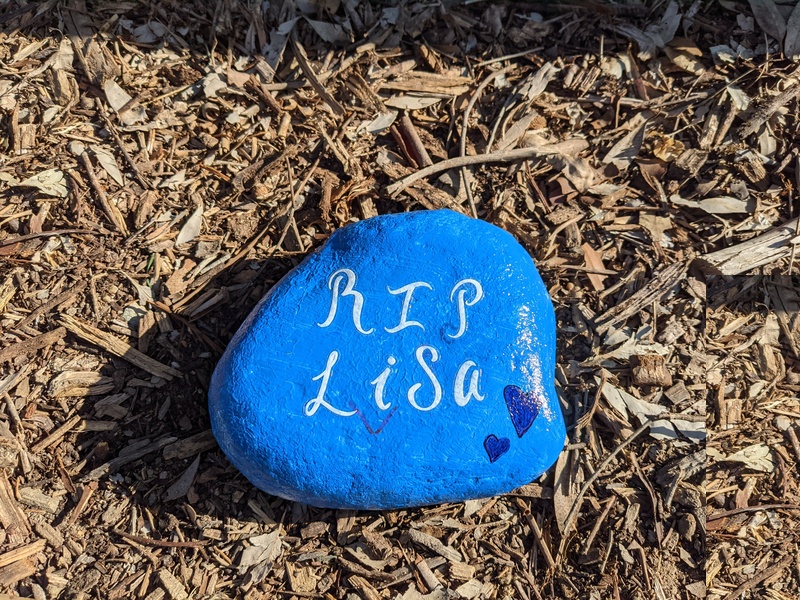
Why was Lisa Thorborg, a beloved 68-year-old mother and grandmother, murdered in broad daylight as she hiked on a popular Carlsbad trail on the morning of November 23, 2020? She was stabbed twice in the neck and bleeding to death when the 911 call came in at 11:23 a.m. This vicious and senseless attack brought sudden heartbreak to Lisa’s family and friends and terror to a stunned community. Who could have done this unthinkable act? And why?
Haloa Beaudet Admits to the Killing
Tragically, the reason may never be publicly known, but the who has at last been answered. On August 18, 2022, Haloa Beaudet admitted to killing Lisa Thorborg on that terrible November day. Beaudet, now 18, was 17 at the time of the slaying. Although arrested on December 14, 2020, mere weeks after the murder, the admission did not come until the eve of a 10-day hearing in which the San Diego County District Attorney’s Office was seeking to have Haloa Beaudet tried as an adult. For a complete in-depth story on this case and the evidence presented at the juvenile detention and prima facie court hearing on December 22, 2020, please read my story at: https://aleidalaw.com/lisa-thorborg-a-carlsbad-hiker-murdered-and-a-teen-accused/
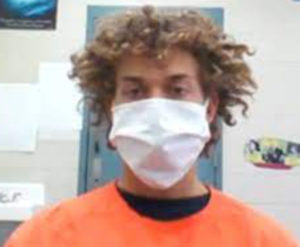
Was the Sentence for Haloa Beaudet Just?
Today, under the terms of the stipulated agreement, Judge Robert Trentacosta ordered Haloa Beaudet to serve seven years in the California Department of Corrections and Rehabilitation Division of Juvenile Justice. There is to be no downward deviation from the seven-year sentence. He will serve all years. Haloa Beaudet will be 25 years old upon his release, the maximum age limit the juvenile system can hold him. Had he been in adult court, he would have faced 26-years-to-life for the murder charge.
As the sentence was announced by the media, many people in the public expressed outrage, feeling the sentence was far too light. Seven years for murder of a completely innocent person? People wondered aloud: Would Haloa Beaudet be rehabilitated in those years? Or would he just be set free to kill again? And why wasn’t he transferred to adult court?
Trying Juveniles as Adults
These probing questions raise the long-debated issue of what is the appropriate punishment for a serious crime committed by a juvenile. The California Supreme Court provided an answer in February 2021, in ruling that teens under 16 can no longer be tried as adults, finding state law emphasized rehabilitation instead. Some jurisdictions have gone even further, setting a blanket ban on prosecution of juveniles as adults. In November of 2020, newly elected Los Angeles County District Attorney George Gascon vowed to immediately stop prosecuting juveniles as adults no matter the crime, citing youth and the scientific research that a person’s brain does not fully develop until age 25. In February 2022, however, Gascon modified his policy stating he would consider prosecuting juveniles accused of “severe violence” in adult court, although such decision would be made on a case-by-case basis and at the highest level of scrutiny.
Under Proposition 57, passed by the voters in 2016, prosecutors can no longer directly file charges against a juvenile in adult court under any circumstances. The law requires the prosecutor to file for a transfer hearing to be heard before a juvenile court judge, where both sides present their case.
The Transfer Hearing for Haloa Beaudet
Had the transfer hearing, or fitness hearing as it is called, gone forward in Haloa Beaudet’s case, the judge would have had to determine whether Haloa Beaudet was or was not amenable to the care, treatment, and training programs available through the juvenile court system. Simply put, if the judge decides the minor is “fit” for the juvenile system, the minor stays in juvenile court. If not, the minor is transferred to adult court. Under California Welfare and Institutions Code 707(a)(1) the decision is based upon evaluation of five mandatory factors:
- The degree of criminal sophistication exhibited by the minor.
- Whether the minor can be rehabilitated prior to the expiration of the juvenile court’s jurisdiction.
- The minor’s previous delinquent history.
- Success of previous attempts by the juvenile court to rehabilitate the minor.
- The circumstances and gravity of the offense alleged in the petition to have been committed by the minor.
A determination that the minor is not a fit and proper subject to be dealt with under the juvenile court law may be based on any one or combination of the above factors.
In Haloa Beaudet’s case, the fitness hearing was scheduled for a lengthy period of time, a full 10 days. Days in which important information would have been revealed from both sides. Now the public will never know. Due to the confidentiality of the agreement, the specific reasons allowing Haloa Beaudet to remain in the juvenile system will not be publicly disclosed. What was found in the deep investigation of Haloa’s life? Did the mitigating circumstances outweigh the aggravating circumstances? Although these questions remain, the most pressing question now arises: Will Haloa Beaudet be rehabilitated in the next seven years?
Yet the most heartbreaking fact remains: A beautiful life is gone. I send prayers to Lisa Thorborg’s family.
About Aleida K. Wahn, Esq.

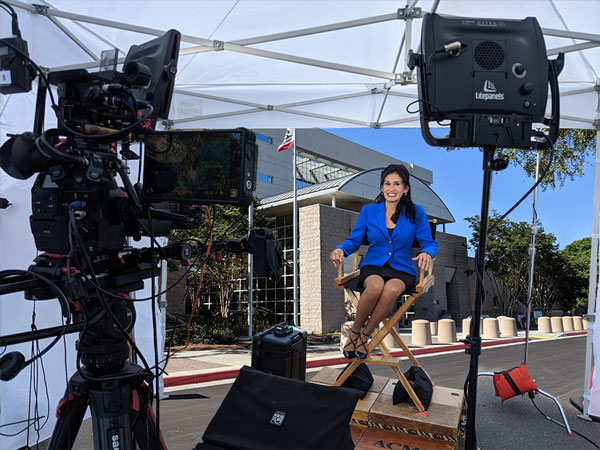
I am an attorney, award-winning true crime writer, and legal analyst of criminal cases. I cover criminal trials and write stories and books about compelling, gripping, and unforgettable cases that impact our world. I take you into the courtroom in high-profile murder trials, rape cases, crimes of passion, cases involving mental illness, deviant behavior, and more. I have a deep passion for true crime, criminal law, and all aspects of the criminal justice system. I have appeared as an expert on true crime shows, including “48 Hours,” “Snapped,” "Peacock TV's Tik Tok Star Murders," and “The Dead Files,” and provided legal analysis on high-profile criminal trials on Court TV, the Law & Crime Trial Network, Fox 5 News, ABC 10 News, and KUSI News. I also create and host shows with the Del Mar Television Producers Group, addressing criminal justice and social issues in recent criminal trials.
I provided my insight and legal analysis on Court TV and the Law & Crime Trial Network of the high-profile trial of former NFL star Kellen Winslow Jr. It was a trial that captured the nation as the heralded ex-football star with fame, fortune, and a famous name stood accused of multiple rapes and other sex crimes involving five women. As the trial delved into shocking facts, complicated legal issues, and unexpected twists and turns, I was there for every minute. After the trial, I wrote a book on the case, going behind the headlines to share the extraordinary details of what happened inside the courtroom. Judging Winslow Jr.: From NFL Star to Serial Rapist? Inside the Shocking Rape Trial of Kellen Boswell Winslow II is now available on Amazon.
I am passionate about telling true crime stories, as these penetrating stories have the power to move us all, while highlighting societal issues which need to be addressed. I have personally seen the human devastation which is present in each trial and believe there is a lesson to be learned in every single case. It is through awareness and examining critical issues society can effect change and even make new laws. To learn more, please visit: https://www.aleidalaw.com.
Read about the gripping and unforgettable trials that I have covered in my latest books:


